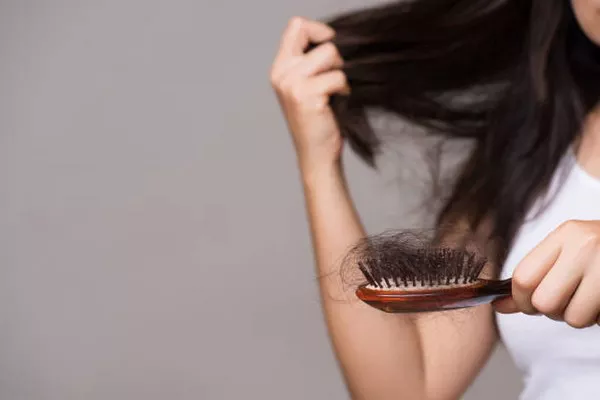Maintaining healthy hair is a universal concern, and distinguishing between hair thinning and hair loss is crucial for effective management. These terms are often used interchangeably, but they encompass distinct conditions, each with its unique causes and treatment approaches. In this comprehensive exploration, we delve into the intricacies of hair thinning and hair loss, shedding light on their characteristics and providing valuable insights into how to address these concerns effectively.
I. Hair Thinning: Causes and Characteristics
Hair thinning, scientifically referred to as diffuse thinning, is characterized by a gradual reduction in the diameter of individual hair strands, resulting in an overall decrease in hair volume. Unlike sudden hair loss, thinning is often a nuanced process that may escape notice until a significant amount of volume has been lost. The causes of hair thinning are diverse and include hormonal changes, nutritional deficiencies, and the impact of certain medications.
Hormonal Changes: Fluctuations in hormone levels, such as those occurring during pregnancy, menopause, or thyroid disorders, can influence the thickness of individual hair strands, leading to an observable thinning of the overall hair volume.
Nutritional Deficiencies: Essential nutrients play a crucial role in maintaining healthy hair. Inadequate intake of nutrients like iron, zinc, and vitamin D can contribute to hair thinning, emphasizing the importance of a balanced diet for optimal hair health.
Medications: Some medications, ranging from blood pressure drugs to antidepressants and chemotherapy medications, may have the unintended side effect of contributing to hair thinning. Understanding these side effects is vital for individuals experiencing hair thinning.
II. Hair Loss: Causes and Characteristics
Hair loss involves the shedding of hair strands from the scalp, and it can manifest in specific areas or be more widespread. Unlike the gradual nature of hair thinning, hair loss can occur suddenly and may result from genetic predisposition, hormonal imbalances, autoimmune conditions, or stress.
Genetic Predisposition: Androgenetic alopecia, commonly known as male-pattern baldness or female-pattern baldness, is the primary contributor to genetic hair loss. Understanding one’s family history can provide insights into the likelihood of experiencing this type of hair loss.
Hormonal Imbalances: Imbalances in hormones, particularly dihydrotestosterone (DHT), can disrupt the natural hair growth cycle, leading to increased hair shedding and eventual thinning. Identifying and addressing these hormonal imbalances is crucial for effective treatment.
Autoimmune Conditions: Conditions like alopecia areata involve the immune system mistakenly attacking hair follicles, leading to hair loss in patches. Recognizing the signs of autoimmune-related hair loss is essential for early intervention and management.
III. Treatment Approaches for Hair Thinning and Hair Loss
Addressing hair thinning and hair loss requires a multifaceted approach, considering the specific causes and individual factors contributing to each condition.
Topical Treatments: Over-the-counter or prescription topical treatments, such as minoxidil, are commonly recommended for both hair thinning and loss. These treatments promote blood flow to the hair follicles, encouraging regrowth and improving overall hair health.
Prescription Medications: Finasteride, a prescription medication, is often prescribed for individuals experiencing hormonal imbalances contributing to hair loss. Understanding the potential side effects and consulting with a healthcare professional is crucial before starting this treatment.
Nutritional Supplements: Addressing nutritional deficiencies through supplements can be an effective strategy for combating hair thinning caused by inadequate nutrient intake. Consulting with a healthcare provider to identify specific deficiencies is recommended for personalized treatment.
Lifestyle Changes: Adopting a healthy lifestyle, including a balanced diet rich in essential nutrients, regular exercise, and stress management, can contribute significantly to overall hair health. Lifestyle changes may not only prevent further hair thinning but also promote regrowth.
Hair Restoration Procedures: In cases of advanced hair loss, surgical interventions such as hair transplantation may be considered to restore hair density. Understanding the potential risks, benefits, and expected outcomes is essential for individuals considering these procedures.
IV. FAQs on Hair Health
Q1: Can stress cause hair thinning or loss?
A: Yes, chronic stress can contribute to hair thinning and loss by disrupting the hair growth cycle. Stress-induced hair loss, known as telogen effluvium, often occurs a few months after a stressful event. Managing stress through relaxation techniques, counseling, and lifestyle changes can be beneficial for mitigating its impact on hair health.
Q2: Are there natural remedies for addressing hair thinning?
A: While some natural remedies, such as aloe vera, essential oils, and certain herbal supplements, are believed to promote hair health, their efficacy varies. It’s essential to approach natural remedies with caution and consult with a healthcare professional for personalized advice. Additionally, maintaining a well-balanced diet and staying hydrated are fundamental natural approaches to support overall hair health.
Q3: How long does it take to see results from hair loss treatments?
A: The timeline for seeing results from hair loss treatments varies based on the specific treatment and individual response. In general, it may take several months before noticeable improvements occur. Patience is crucial, and consistency in following the prescribed treatment plan is essential for achieving the best outcomes. Regular follow-ups with a healthcare provider can help monitor progress and make any necessary adjustments to the treatment regimen.

